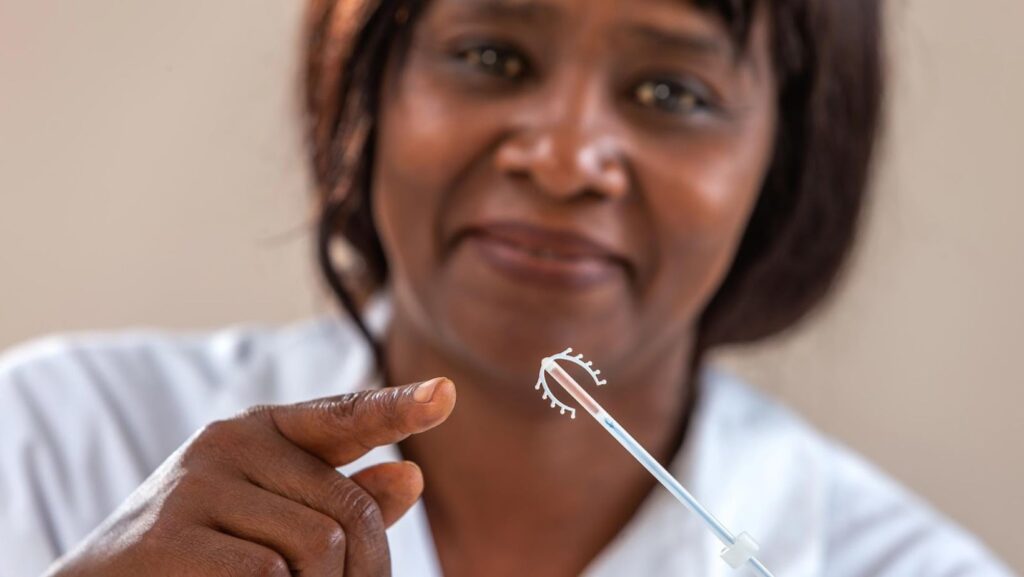The intersection of reproductive health and professional ambition is a reality many women navigate today. Whether it’s mapping out career milestones, pursuing further education, or planning a family later in life, having control over one’s reproductive timeline plays a central role. Yet, this isn’t always discussed openly—especially in regions where talking about contraception still carries a cultural hush.
In Singapore, more women are delaying childbirth or opting out of parenthood altogether to focus on personal goals or career development. For these individuals, working closely with a healthcare provider who understands their long-term health objectives is essential.
Among the various options available, the IUD has quietly become a practical choice for women seeking a reliable, long-term birth control method—offering years of effectiveness with minimal upkeep.
The Link Between Contraception and Career Goals
Balancing career ambition with reproductive choices isn’t just a personal decision—it’s a structural one. Reliable contraception has long been tied to greater economic and educational opportunities for women. A study published by the Guttmacher Institute shows that access to contraception is closely linked to improved workforce participation, higher earnings, and increased educational attainment.
In Singapore’s high-performing, competitive work culture, this becomes even more relevant. Women are expected to stay agile—whether scaling corporate ladders, launching businesses, or building specialist careers. Yet without dependable contraception, the uncertainty of an unplanned pregnancy can significantly disrupt those plans.
That’s where the IUD becomes more than just a medical device. It acts as a strategic tool in a woman’s broader life planning. With efficacy lasting between 3 to 10 years depending on the type, it gives peace of mind that family planning won’t conflict with career momentum.
Quick Fact: According to Statista, the median age of childbearing women in Singapore has steadily risen over the last decade, reflecting a broader shift toward delayed family planning.
Why the IUD Works for Busy Professionals
For professionals with demanding schedules, daily pill routines or frequent clinic visits for injections may not be sustainable. This is where the IUD—short for intrauterine device—offers a more convenient alternative. Once inserted by a qualified healthcare provider, the IUD works silently and efficiently in the background, requiring little to no daily attention.
There are two main types of IUDs available in Singapore: hormonal and non-hormonal (copper). Both are highly effective, with success rates of over 99% in preventing pregnancy, according to the World Health Organization (WHO).
Here’s a quick comparison:
| Type of IUD | How it Works | Duration | Considerations |
| Hormonal IUD | Releases progestin to prevent fertilisation | 3–6 years | May reduce menstrual cramps and bleeding |
| Copper IUD | Toxic to sperm, preventing fertilisation | Up to 10 years | Non-hormonal, may increase menstrual flow |
What makes the IUD particularly suited to busy professionals is its set-and-forget nature. There are no refills, apps, or alerts required—just routine check-ups. This frees up headspace for women to focus on what matters most to them, whether it’s launching a startup or preparing for a promotion. 
It’s also a reversible method, meaning when the time is right, fertility returns shortly after removal—something increasingly important for women who want flexibility in long-term planning without sacrificing future options.
Fertility Planning with Long-Term Methods
Fertility isn’t just a biological timeline—it’s part of a broader life strategy. Many women in their 20s and 30s are thinking ahead: Do I want children? If so, when? And if not, how can I preserve my options without constantly managing contraception? These are complex, deeply personal questions—but long-term birth control methods like the IUD give women more room to answer them on their own terms.
Unlike short-term methods (e.g. pills or patches), which require regular action and leave more room for human error, long-acting reversible contraceptives (LARCs) such as the IUD are both discreet and reliable. As highlighted by the Centers for Disease Control and Prevention (CDC), LARCs have some of the lowest failure rates among all contraceptive methods, largely because they remove user error from the equation.
This makes the IUD especially appealing for women who:
- Want effective contraception while delaying family planning
- Have health or lifestyle reasons for avoiding hormonal fluctuations
- Need contraception they don’t have to manage daily or monthly
- Want a reversible method without compromising on efficacy
It also supports broader reproductive autonomy. Fertility planning should be about choice—not pressure. And for many women in Singapore navigating evolving cultural expectations and workplace demands, having a quietly effective, long-term solution can be a game-changer.
IUD as a Stress-Free Option
Stress is often an overlooked factor in reproductive health decisions. For many women juggling careers, family obligations, and financial responsibilities, the last thing they want is added mental load from contraception management. The IUD offers relief from this pressure by minimising the emotional and logistical burden of daily or monthly birth control routines.
Think of it as an “autopilot” for contraception. Once inserted, an IUD can provide protection for years, freeing women from the need to remember pills, refill prescriptions, or schedule regular appointments. According to the National Health Service (NHS), the IUD is over 99% effective, with no impact on long-term fertility once removed.
Many women also report peace of mind knowing that:
- They don’t need to worry about missed doses.
- Their method is discreet and doesn’t interfere with sex or daily activities.
- It doesn’t require frequent check-ins with a doctor unless there’s a concern.
Importantly, the IUD removes decision fatigue. There’s no monthly choice to make, no daily discipline to uphold—just one decision that supports reproductive goals for years. In the context of modern life, that kind of clarity and simplicity can feel like a luxury.
Taking Control of Your Reproductive Timeline
Reproductive freedom isn’t just about access—it’s about timing, planning, and autonomy. In a society where professional development, financial readiness, and personal growth are increasingly prioritised before parenthood, having the tools to control your reproductive timeline is fundamental.
An IUD doesn’t dictate that timeline—it simply protects it. Whether a woman wants children in five years, isn’t sure yet, or has decided to remain child-free, long-term contraception puts the decision fully in her hands. It offers a form of stability in an otherwise unpredictable world.
In Singapore, where the fertility rate continues to decline and the average age of first-time mothers rises, this shift reflects a broader trend: women are asking for more flexibility and fewer assumptions when it comes to reproductive health.
And the beauty of the IUD is that it doesn’t require a definitive answer right now—it just keeps the options open.
Conclusion
The conversation around contraception is evolving—from a reactive measure to an intentional part of life planning. For women navigating the intersections of career, relationships, health, and personal growth, the IUD offers more than just long-term pregnancy prevention. It supports a mindset shift: from short-term control to long-term confidence.
By working with a trusted healthcare provider, women can explore options that align with their values and timelines. A long-term birth control method like the IUD can help eliminate uncertainty and mental overhead, giving space for what truly matters—whether that’s growing a career, travelling the world, or simply living without the weight of constant reproductive planning.
As more women in Singapore take ownership of their fertility choices, solutions like the IUD are helping redefine what empowered, informed reproductive health looks like in practice—not just theory.



